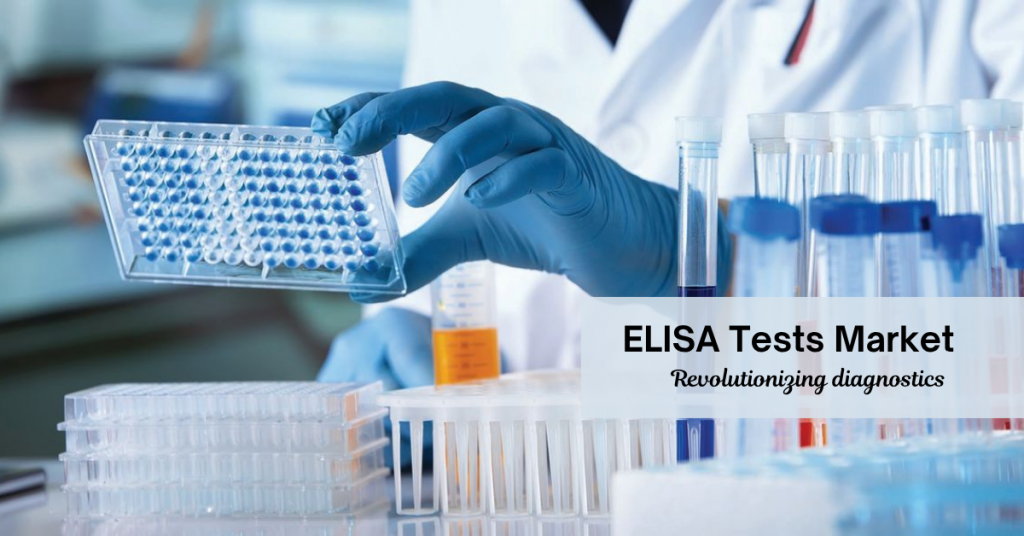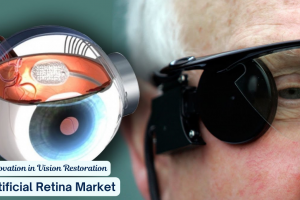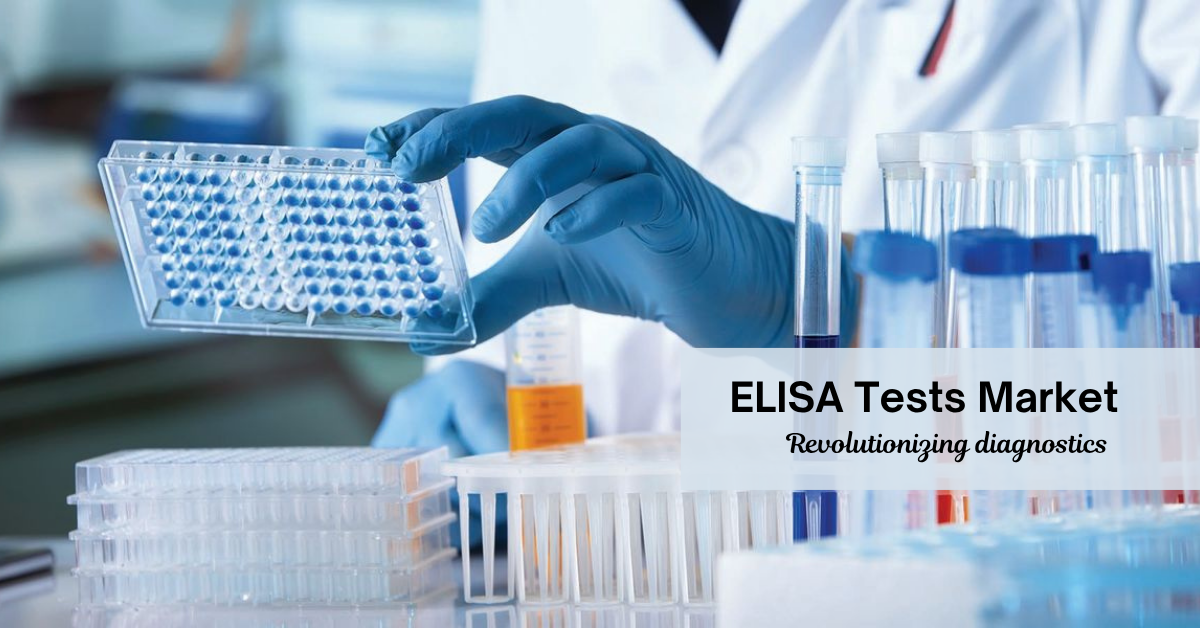
Market Overview
The Enzyme Linked Immunosorbent Assay (ELISA) Tests Market size was valued at USD 4,118.72 million in 2018 to USD 5,894.59 million in 2024 and is anticipated to reach USD 9,421.09 million by 2032, at a CAGR of 5.62% during the forecast period. The steady rise in market valuation reflects growing demand for precise and cost-effective diagnostic tools in both clinical and research settings. ELISA testing has become foundational to diagnostic laboratories worldwide, offering high sensitivity and specificity across a broad spectrum of diseases.
In today’s healthcare ecosystem, early and accurate diagnosis is critical to improving outcomes and reducing healthcare costs. ELISA tests are instrumental in this context due to their scalability and application across infectious diseases, cancer detection, autoimmune disorders, and more. Their versatility, ease of use, and compatibility with automation are enhancing their relevance in the age of personalized medicine. As demand for preventive diagnostics and targeted therapies grows, ELISA technologies continue to evolve, maintaining their central role in clinical diagnostics and biomedical research.
Read full report: https://www.credenceresearch.com/report/elisa-testing-market
Market Drivers
Growing Burden of Infectious Diseases
The global resurgence of infectious diseases, such as tuberculosis, hepatitis, and vector-borne infections, is driving the adoption of ELISA tests. These tests offer reliable, early-stage detection, which is vital for controlling outbreaks and limiting transmission. Governments and NGOs are also promoting diagnostic screening, further bolstering market growth.
Improved Affordability and Accessibility
Technological advancements have enabled the development of cost-effective ELISA kits that can be widely deployed. With mass manufacturing and innovations in reagents, even small laboratories in developing countries can afford ELISA setups. This increased accessibility contributes significantly to the test’s global reach.
Growth in Personalized Medicine
ELISA is increasingly used to detect disease-specific biomarkers, supporting tailored treatment plans. In oncology and endocrinology, personalized medicine approaches rely on precise biomarker profiling, which ELISA tests facilitate effectively. This demand is strengthening the test’s relevance in modern therapeutic strategies.
Supportive Government Policies and Funding
Global health bodies and governments are actively investing in diagnostic technologies to support public health initiatives. ELISA-based screening programs for HIV, COVID-19, and hepatitis have received substantial funding, promoting market expansion. Favorable reimbursement models in developed regions further encourage adoption.
Market Challenges
Complex Regulatory Environment
ELISA manufacturers must comply with differing international regulations and quality standards. From FDA clearances in the U.S. to CE marking in Europe, navigating these frameworks delays commercialization. These challenges create entry barriers, especially for startups and regional players.
Low Awareness in Rural Healthcare Systems
In many underdeveloped regions, awareness about ELISA’s benefits remains limited. Healthcare workers often rely on traditional methods or lack training in ELISA applications. This knowledge gap hinders wider adoption, even when infrastructure is available.
Time-Consuming Manual Processes
Manual ELISA procedures, although accurate, can be labor-intensive and time-consuming. This restricts throughput in high-volume diagnostic settings, leading to operational inefficiencies. Facilities lacking automation face challenges in meeting large-scale testing demands.
Risk of Cross-Reactivity and False Positives
ELISA tests, particularly those using polyclonal antibodies, may produce cross-reactivity. This can lead to false-positive results, requiring follow-up testing. Concerns over accuracy in specific applications may drive clinicians to opt for more advanced molecular diagnostics.
Market Opportunity
Advancements in Multiplexing Technologies
Multiplexed ELISA systems that analyze multiple analytes in a single run are gaining interest. These solutions reduce assay time and cost, making them attractive for both research and diagnostic labs. Such systems support advanced studies in oncology and immunology.
Expanding Use in Food Safety and Environmental Testing
Beyond healthcare, ELISA is increasingly used for detecting allergens, pathogens, and contaminants in food and water. With global regulations tightening around food safety, the demand for ELISA-based environmental testing is set to surge.
Growing Veterinary Diagnostic Applications
Veterinary medicine is adopting ELISA tests for monitoring animal health and detecting zoonotic diseases. These tests help in surveillance and control of diseases such as brucellosis and avian influenza, opening new market verticals for manufacturers.
Development of Home-Use and Self-Testing Kits
Innovations in miniaturization and user-friendly formats are paving the way for ELISA self-test kits. These kits, designed for home use, allow individuals to test for conditions like allergies or hormonal imbalances, expanding consumer-driven diagnostics.
Market Segmentation
By Test Type
- Sandwich ELISA
- Indirect ELISA
- Competitive ELISA
- Direct ELISA
By Application
- Immunology
- Oncology
- Infectious Diseases
- Bone Disorders
- Others
By End User
- Hospitals
- Diagnostic Laboratories
- Research & Academic Institutes
- Pharmaceutical & Biotechnology Companies
By Region
- North America
- Europe
- Asia Pacific
- Latin America
- Middle East & Africa
Regional Analysis
North America
North America continues to lead due to the high volume of chronic disease cases and sophisticated diagnostic infrastructure. The U.S. boasts advanced research facilities and frequent product approvals, while Canada supports public diagnostic initiatives. Mexico’s rising healthcare reforms further boost regional demand.
Europe
Europe remains prominent with its integrated healthcare systems and proactive disease management strategies. Countries like Germany and Sweden emphasize early detection and laboratory automation. EU-wide regulations enforce diagnostic quality, making the market favorable for reputable ELISA providers.
Asia Pacific
Asia Pacific is poised for exceptional growth, supported by large patient populations and rising government investments in diagnostics. Nations such as India and China are seeing growing demand due to increased urbanization, disease awareness, and domestic manufacturing capabilities.
Latin America
Latin American markets are gaining momentum through stronger healthcare collaborations and disease control efforts. Brazil leads the region, supported by growing investments in hospital infrastructure and lab automation. Diagnostic awareness is increasing across Argentina and Colombia as well.
Middle East & Africa
The region is gradually catching up, with GCC countries like Saudi Arabia enhancing laboratory infrastructure through public-private partnerships. South Africa remains a diagnostic hub in Sub-Saharan Africa, particularly for HIV-related testing where ELISA plays a crucial role.
Top Companies
- Thermo Fisher Scientific Inc.
- PerkinElmer, Inc.
- Bio-Rad Laboratories, Inc.
- Merck KGaA
- Hoffmann-La Roche Ltd.
- Siemens Healthineers AG
- BD (Becton, Dickinson and Company)
- Agilent Technologies, Inc.
- BioMerieux SA
- Ortho Clinical Diagnostics
Future Outlook
- ELISA tests will play a vital role in global pandemic preparedness through scalable diagnostic applications.
- Increased investment in automation and robotics will transform diagnostic efficiency across healthcare labs.
- Personalized healthcare and companion diagnostics will strengthen the relevance of biomarker-based ELISA testing.
- Home testing innovations will bring ELISA capabilities directly into consumer hands for chronic disease monitoring.
- AI-driven analytics will improve test result accuracy, supporting better clinical decision-making.
- Adoption in veterinary, food safety, and environmental sectors will diversify ELISA’s market base.
- Emerging economies will witness increased adoption due to healthcare digitization and government initiatives.
- Microfluidic and nano-ELISA technologies will drive miniaturization and portability of test kits.
- Reimbursement reforms in key markets will support wider access to advanced ELISA diagnostics.
- Global collaborations will lead to faster development of ELISA panels for novel and rare diseases.
Read full report: https://www.credenceresearch.com/report/elisa-testing-market










